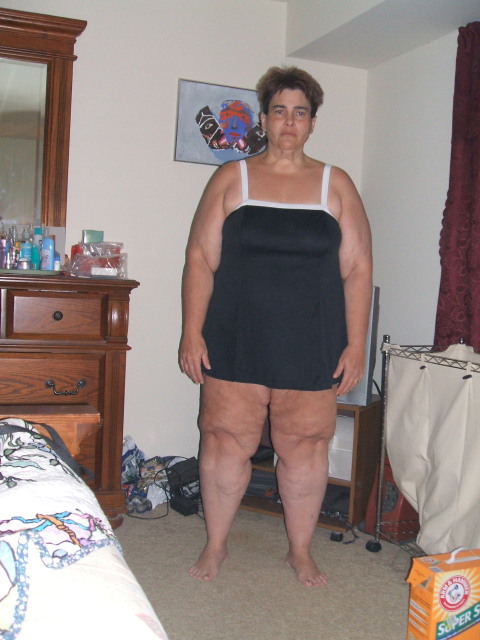hunger pangs all the time
Question
I had sleeve done 2 months ago,and only have lost 28 pounds I constantly have hunger pangs even after i have eaten!they say thats not possible being that the hunger hormone has been removed with part of my stomach,I also have been able to eat way more than im suppose to able to.What could be going on?
Hi Janice:
I'm sorry your not happy with the way things are going so far. I don't know what your starting weight was, but 28 pounds in two months is pretty darn fantastic. Remember, the average weight loss for a sleeve gastrectomy is in the 50-60% of excess weight loss--so, assuming you were 100 pounds overweight, you would have lost already 28% of your excess weight. Of course, you might have more or less to lose. Some of the best advice I ever received (although the most difficult to follow) is not to compare yourself to others. This can be especially difficult if you're on support boards like OH and you see people posting obscenely large weight losses, when you are losing much more slowly. A few things to remember: 1) Everybody loses at a different weight. 2) Everybody is starting with different factors that impact weight loss--different age, muscle mass, sex, activity level, comorbidities, diet history, surgical history, etc. So as difficult as it is, try not to focus on others, but look at your own history. Have you ever lost 28 pounds in two months so effortlessly? Were you able to keep it off? Do you think you have a better chance keeping it off with your sleeve?
As for eating more than you should, it's really subjective. I'll venture a guess that you are not eating anywhere near the amounts you could pre-surgery. My guess is that at maximum, you're eating half as much as you did pre-op. Surgeons look to remove 85-90% of your stomach with the Sleeve. Even though some attempt at standardization is made by sizing with a bougie (tube)--usually a 32 or 34 French--there still is variation. Even the length of one's stomach might be larger than another person's.... no, not by much, but a little bit. Another factor is how well your body adapts to the surgery. There are people who experience a lot of swelling post-op...and that swelling does not resolve as quickly for them. They can have difficulty eating and drinking. On the other hand, there are people whose bodies recover quite quickly--virtually no swelling...and they appear to eat more than others.
Ghrelin, too, can be different for all. Although you are experiencing some hunger pains, I hope they are not as strong as pre-op.
Thing is... you might have a larger sleeve than others. The only way to tell that is via a barium swallow with a radiologist. BUT...even if you do... the stomach you have now is a lot smaller than it was pre-op. You still have a much better chance than before of not only losing a signficant amount of weight, but of keeping that weight off. You can still be a tremendous success by following the same rules that one would follow regardless of sleeve size...such as....
You can maximize satiety and weight loss by following your doctor's advice to eat protein first, followed by non-starchy vegetables and fruits, and then whole grains if there is room. If you've decided that sweets (or whatever) are going to be a part of your life--then limit them to one meal... or after you've eaten a healthful Sleeve meal...or whatever. Find what works for you.
You can limit the number of small meals you eat to 6, and also agree that when you feel full the first time, you stop eating until your next scheduled meal. You don't wait 20 minutes until you have a bit more space and try and finish your meal.
Attend any support groups that your surgeon/hospital offers.
Take your vitamins!!! Get blood work done at 6 months, and then every year after.
Check with your primary care physician about any conditions you have that may be affected by your weight loss. If you are on medication for hypertension, high cholesterol, diabetes, or even hypothyroid--these may need to be adjusted.
You can begin to exercise--not only for better weight loss now, during your honeymoon phase, but also to ensure you maintain your weight loss. A pedometer, water aerobics, Curves, Leslie Sansone or ShapleyGirl DVDs are all good beginner options.
I had a sleeve done after seven years with a Lap-Band. I lost 50 pounds--and was a bit disappointed. Then, 2-1/2 years later, I got pregnant again. I ended up losing another 30 pounds following that pregnancy--with no additional effort. It was weird. I had no trouble keeping off the first 50 pounds, and haven't had any trouble keeping off the bonus 30. I've been there--had slower weight loss than most... able to eat more...etc. It sucks. But you know what? I'm 1000x better off than pre-sleeve. Right now, I'm at my lowest adult weight ever. That's pretty darn amazing. My diabetes has resolved. Am I skinny? Nope. But I'm no longer morbidly obese--and I'm a lot healthier. :)
Peace,
Karla
Related Articles
-
gastric ulcer post roux-en-y
QuestionI had a RNYGB 4.5 years ago and have been doing fine unti
-
Frequent Burping after GB - 4 Years PO
QuestionHello. Im nearly 4 years postop from an open RNY. Lately,
-
Gastric redo
QuestionI had my stomach stapled 13 years ago and recently did a
-
Gall Bladder After LAP-BAND
QuestionHello, About 7 weeks after my Lap-Band Surgery, and the
-
VSG and scar tissue from previous lap band
QuestionDear Dr. Pilcher, First I wanted to say I think its wond
-
too much weight loss
QuestionI had gastric bypass surgery in March 2006. I was 325 pou
More Great Links

